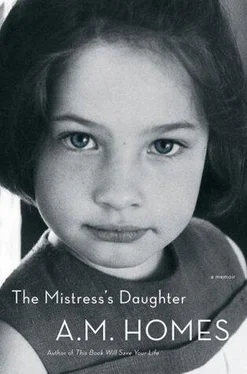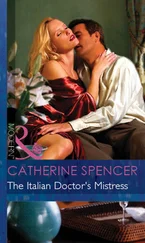Whether or not Magdaline, William, and their son, Howard, or Bernhard or Henry are related to me by blood, they are all related by humanity and by the stories the files tell, and it is all lunacy! I am including the stories here because I cannot bear for them to be forgotten.
I continue to dig, off and on, stop and start, and collect the fragments of hundreds of lives. The technicality of biological relation becomes somewhat irrelevant — I am thrilled by what I am finding, by dipping into history, by seeing how people lived and died, noticing what else was going on in the world at each of these points. As stressful it has been, I have enjoyed the process; it amazes me how deep and expansive the World Wide Web is (at only fifteen years old) and I am thrilled to have met and corresponded with so many people along the way. My search is no longer all-consuming, the initial urgency has settled into a perhaps healthier continuing curiosity and no doubt will continue on and off over time. And yes, there is comfort in having connected some of the dots — in having names and dates and some sense of where my family lines and I fit into history. I can juxtapose Robert Slye’s birth in England with the reign of Queen Elizabeth. I note that Friedrich Nietzsche is born in the same year as Jacob Spitzer (the father of my beloved grandmother Julia Beatrice), and that in 1959, the year of my brother Jon’s birth, the Dalai Lama escapes Tibet and goes to India, while Alaska and Hawaii become the latest additions to the United States. In January 1961, the year of my birth, at the inauguration of John F. Kennedy, the American poet Robert Frost stands to recite a new poem, “Kitty Hawk,” but is frail and fumbles the words. He begins again, instead reciting “The Gift Outright.”

Norman Hecht as a boy

Norman Hecht as a young man
Ihave not spoken to my father since the conversation in late 1998 that ended with him saying I could call him anytime—“Call me in the car, my wife’s not usually in the car.”
In the summer of 2005, as an extension of my genealogical adventure, I decide to join the Daughters of the American Revolution. My desire is not political but personal. I want to join the DAR because it is a lineage organization — and among the first things my father told me about myself was that I am eligible. And while I am an unlikely member of such an organization, I want to try it on as a piece of my biological identity — I want to see from the inside the thing that I am not. My friends are upset by the idea; they view the DAR as right wing and racist. In 1939 the DAR refused to allow the black singer Marian Anderson to sing at Washington D.C.’s Constitution Hall. (Subsequently Miss Anderson sang at Constitution Hall six times.) I explain to my friends that understanding my background is not just about embracing the parts that feel comfortable, and that, in this case, my interest is in the concept of lineage. I trade e-mails with the president of the Port Tobacco, Maryland, chapter — the hometown chapter of the Slyes of Maryland. She sends me a copy of the worksheet, which asks the applicant to walk back through time and provide the documentation for fourteen generations proving the link to the one deemed “the Patriot.”
I am assured that this documentation can be assembled if I can provide the more current information — namely my father’s birth certificate and my own. A complication — my father’s name is not on my birth certificate. And my father’s birth certificate is available from the District of Columbia Department of Vital Records, but only to next of kin — photo ID required. I explain to the DAR that my birth parents were not married and that I was adopted and I do not have a birth certificate with my father’s name on it, but that my father and I had a DNA test to prove our relationship. The DAR responds that they do not care if my parents were married or not, they will accept the DNA test as sufficient proof. A further complication — I don’t have a copy of the results.
Why didn’t I ask him for a copy of the test in July 1993 when the blood was drawn? I could say I felt shy, but the truth is I felt infantile — thrown back through time. It was all I could do to hold on to any semblance of self. I wanted him to like me, I wanted to know more about who I was, where I had come from. I felt I had to do what I was told. As much as he and I were equal participants in the test, he paid for it, refusing to accept my offer to share the expense. I was intimidated. I didn’t want to cause trouble. I didn’t want to be rejected again.
I imagine asking him and am intimidated even now. Just the idea of it hurts. And I always worry that my call will come too late — he will be dead. And even if he’s not, what will I say—“Hi, I want to join the DAR and I need a copy of your birth certificate and the DNA test?”
I imagine him answering the phone — his voice will tremble and he’ll say, “This is not a good time — can I call you back later?” How will I feel if he doesn’t call back? And what if I do manage to ask for what I want and he stalls, and there is an awkward and heavy silence? Do I continue, “We were equals in submitting to the test and both have the right to the information?” And if he says, “I don’t think so,” I’m not sure where I go. “I’ve never asked you for anything, but now I am asking you for something and I hope you will reconsider.”
I think of calling him — in my imagination, his wife answers the phone, and is not pleased. To her I am illegitimate. Does it mean I don’t exist, that I never existed, that I am something to be forgotten, left behind, basically a big embarrassment?
In my thoughts I can call him; in reality I can’t pick up the phone.
I ask Marc, my lawyer — the same lawyer who called him years ago to tell him Ellen was dead — if he would mind giving him a call. I give Marc the phone number and explain that his wife might answer. We discuss what he is going to say. The call is made.
The wife answers the phone and my father goes into another room to take the call. My father tells my lawyer that he will not provide the test result, that in fact he does not even have the test result — he gave it to his own lawyer for safekeeping. Marc is told that he should not call my father anymore, that any further communication should go through my father’s lawyer. Marc calls my father’s lawyer and the lawyer tells him that, yes, he did have the test result but that he did something with it — can’t remember what, so it’s not to be had. Marc tells him that an affidavit of paternity will do and is told that that’s not possible, that’s not going to happen.
Call me naive — there was part of me that thought when my lawyer called and asked for the test results, the answer would be, Yes, of course, and how is she?
When Marc calls to tell me how it went I’m feeling hopeful, cheered by the swiftness of the response. “I spoke to your father,” he says and I’m pleased, proud in a certain way, and then he says, “And it didn’t go well,” and my spirits sink. “He declined to provide the information and asked that we not contact him directly again.” That’s my father we’re talking about — my father is saying, Please don’t call again. Was it something I said, or just the fact of my existence?
The idea that my father asked me to participate in a DNA test — asked me to prove myself to him — and now won’t share the results is not okay. It is about power and arrogance and the negation of my right to own my identity. I feel a moral obligation — a social and political obligation, an obligation that is larger than me — to try and get a better resolution, a better end.
Читать дальше














